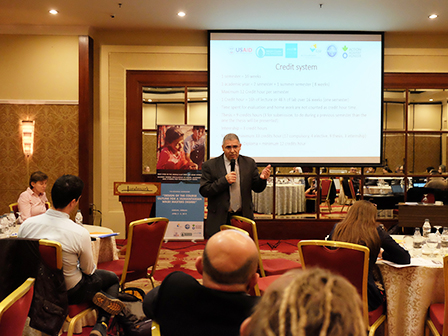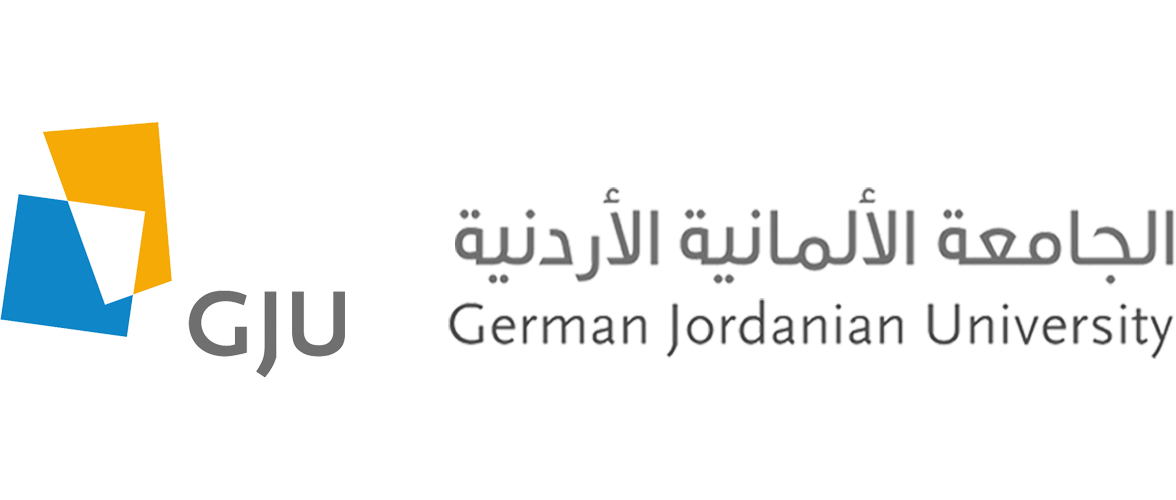 GJU and its partners; Action Against Hunger (ACF), Bioforce, and The Global WaSH Cluster conducted a comprehensive workshop as part of the partnership aiming at designing a new master program and first-of-its kind in the Middle East in Humanitarian Water, Sanitation and Hygiene (WaSH). That will be housed at the School of Natural Resources Engineering and Management and funded by OFDA/USAID and UNICEF. This very Important MSc program is anticipated to start in October 2020.
GJU and its partners; Action Against Hunger (ACF), Bioforce, and The Global WaSH Cluster conducted a comprehensive workshop as part of the partnership aiming at designing a new master program and first-of-its kind in the Middle East in Humanitarian Water, Sanitation and Hygiene (WaSH). That will be housed at the School of Natural Resources Engineering and Management and funded by OFDA/USAID and UNICEF. This very Important MSc program is anticipated to start in October 2020.
Prof. Manar Fayyad, GJU president has opened the activities of the workshop. She indicated that the new MSc program is unique and touches on a crucial subject in the region namely, capacity building in Humanitarian Water, Sanitation, and Hygiene (WaSH) while the three-day workshop is serving as milestone to turn this capacity building initiative into reality.
Prof. Fayyad reiterated that the Middle East Region is for a long period of time facing huge humanitarian crisis and challenges in different sectors. Therefore, humanitarian interventions in crisis settings is a key factor that has to be considered. In addition, the humanitarian responses in WaSH as well as the countries resilience phase, could last for years. She also indicated that this reality makes a call first to synergize between humanitarian variables influenced by the social needs and the engineering technology, which would introduce a new definition of humanitarian engineering. Secondly, to emphasize the need not only to provide support to National WASH Coordination Platforms but also to build a Middle East capacity in terms of WaSH humanitarian response.
Dr. Munjed Al Sharif, Dean of the SNREM and the academic coordinator of the project, suggested that this master program will be a real example of implementing humanitarian engineering in a holistic approach to deal with the regional devastations after crisis and conflicts. It is also an example of the appropriate matching of the graduate’s skills with the market and region needs.
He also explained that participants in the workshops are coming from about 20 academic, research, donor, and humanitarian organizations with the aim of developing the courses outlines, main sessions, and the roles of possible future partnerships.
Dr. Arwa Abdelhay, the Vice Dean of the SNREM, and the administrative coordinator of the project elaborated that OFDA/USAID and UNICEF have generously funded the preparation phase of the program which will last until the official start of the MSc in October 2020. In addition, Action Against Hunger (ACF) serves as the lead coordinator of the project and, Bioforce institute, and Global WaSH cluster provide the technical backstopping to the development process of the program.

